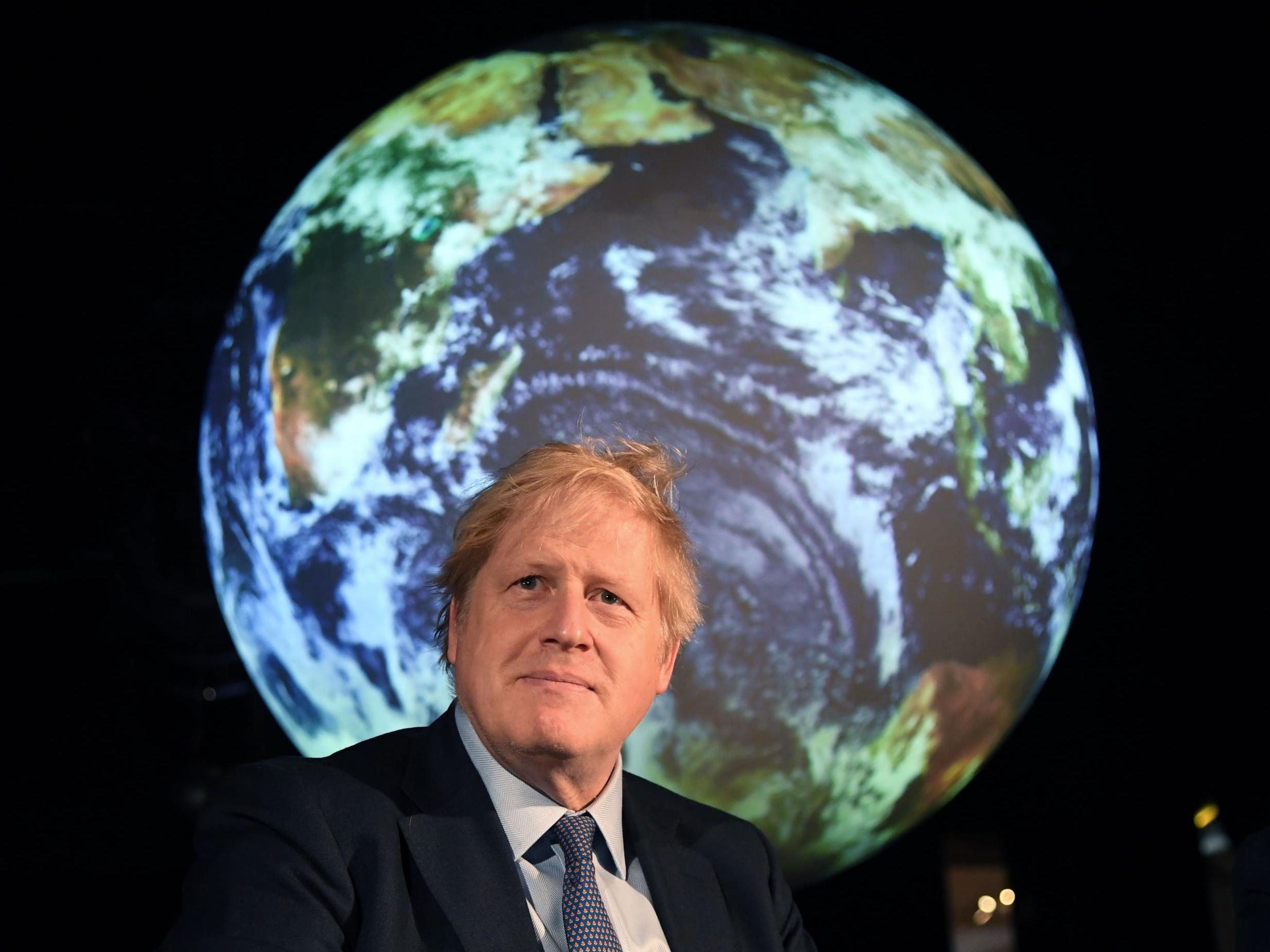Some world leaders may not be coming to Cop26 – but it’s not all doom and gloom
Headlines will undoubtedly focus on the drama of environmental protests, but faceless bureaucrats will hash out what could be the most important new set of financial rules since the Great Financial Crisis of 2008


Your support helps us to tell the story
From reproductive rights to climate change to Big Tech, The Independent is on the ground when the story is developing. Whether it's investigating the financials of Elon Musk's pro-Trump PAC or producing our latest documentary, 'The A Word', which shines a light on the American women fighting for reproductive rights, we know how important it is to parse out the facts from the messaging.
At such a critical moment in US history, we need reporters on the ground. Your donation allows us to keep sending journalists to speak to both sides of the story.
The Independent is trusted by Americans across the entire political spectrum. And unlike many other quality news outlets, we choose not to lock Americans out of our reporting and analysis with paywalls. We believe quality journalism should be available to everyone, paid for by those who can afford it.
Your support makes all the difference.November in Glasgow was never going to be fun. But even the most callous pessimists didn’t predict the scale of gloom descending on the Scottish city as 20,000 government and business leaders arrive for the United Nation’s global climate summit next week.
Growing energy crises in Europe, China and India ahead of winter; leaders from major polluters such as China, Russia, Brazil, and Mexico boycotting; scientists warning of environmental devastation without urgent action; and President Biden’s signature climate legislation in tatters. Covid. All set the stage for what could be a major disappointment in a year that was supposed to mark the world’s collective turn toward a green energy revolution.
But looking past the drama of Boris Johnson’s big chance to set post-Brexit Britain’s place at the international table, investors see progress about to move decisively in the form of coordinated financial regulation to prevent the climate crisis from causing another global financial crisis.
Efforts by the European Central Bank to require banks to stress test their lending portfolios against the risk of flooding and wildfires were followed this past week by US regulators, led by treasury secretary Janet Yellen. The Financial Stability Oversight Council released a series of guidelines on climate risk disclosure pushing banks to enhance their risk reporting. The UK also moved this past week to require companies to publish their plans to transition to net-zero emissions.
What this does for investors is shed light on which companies will be prepared for the expected ravages of the climate crisis based on the carbon already released into the atmosphere, and what is to come. That will inform how much of the estimated $37 trillion in environmental, social, and governance investments held by financial institutions will be deployed in coming years.
From entrepreneurs building new ways to suck carbon out of the atmosphere and store it or use it in products, to giant auto manufacturers transforming their fleets to electric vehicles, to wind and solar companies – these investments will help build new businesses that can transition worldwide economies away from oil and gas.
Greater transparency into bank balance sheets will also help investors determine who is most at risk from devastation from rising seas or fiercer hurricanes, or wildfires and floods.
A recent survey by British climate intelligence firm Cervest found that 88 per cent of all companies have seen the climate crisis affect their buildings or other hard assets in some way in the last five years. Insurance companies are pulling coverage from homeowners and businesses in the American West because of the unpredictability of wildfires.
Banks seem wholly unprepared for what is to come, but these types of disclosure mandates will at least give climate investors more insight into what type of risk they present.
Also at stake is some $22 trillion in oil, gas and coal plants and production centers currently held by the fossil fuel industry, and the banks that support it. Oil prices are currently at record highs, above $80 a barrel, as countries returning to work after the pandemic demand more energy. Renewable sources aren’t yet able to keep up.
But as some of the leading asset managers in the US – including university endowments from Harvard and Dartmouth – announce they will be divesting their fossil fuel holdings; the possibility that these investments will become “stranded assets” looms large for the lenders and insurers behind them.
To keep up to speed with all the latest opinions and comment sign up to our free weekly Voices newsletter The Opinion by clicking here
The coming together of Europe, the UK and the US in pushing these mandates bodes well for a successful series of meetings in Glasgow, at the Cop26 event. While the headlines will undoubtedly focus on the drama of environmental protests, and what Greta Thunberg will say to world leaders, the faceless bureaucrats in windowless conference rooms will hash out what could be the most important new set of financial rules since the Great Financial Crisis of 2008.
In many ways, these giant international conferences have outgrown their usefulness. We learned during the pandemic how much can be accomplished plugging away together online. For Cop26, which is billed as the most important global summit of the year and for the climate crisis, of all time, some element of success is necessary to keep the fight against global warming on track.
Boris Johnson may not know it, but just making the summit happen in the middle of our war on Covid might well prevent a more calamitous economic super-spreader event in years to come.
David Callaway is founder of Callaway Climate Insights and former editor-in-chief of USA Today
Join our commenting forum
Join thought-provoking conversations, follow other Independent readers and see their replies
Comments